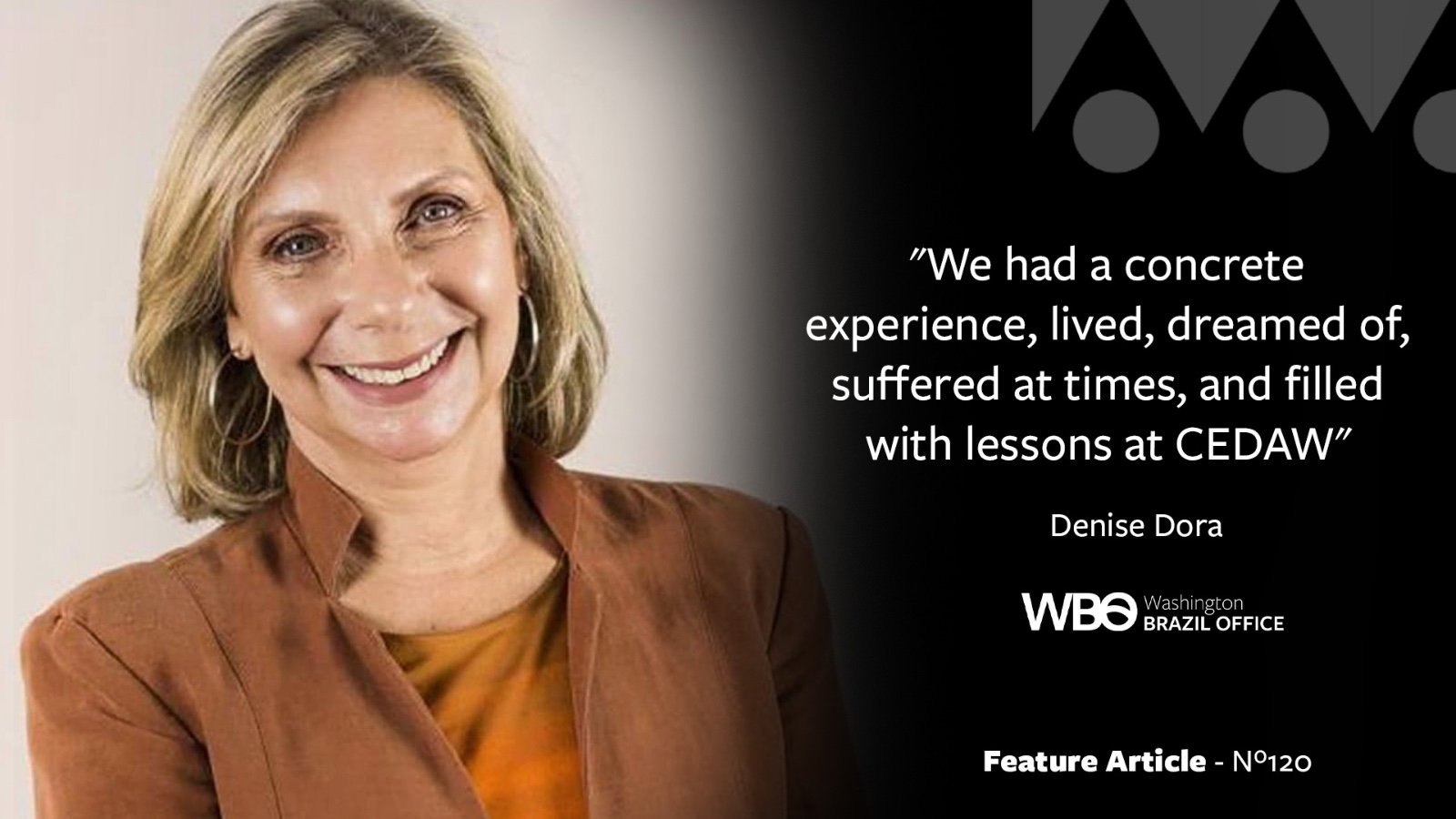CEDAW and Women’s Rights: So Far, So Close
Denise Dora is coordinator of the WBO Gender and Freedom of Artistic Expression Program. This article was written especially for issue 120 of the WBO weekly newsletter, dated June 7, 2024. To subscribe to the newsletter, enter your email in the field below.
In 1979, the United Nations General Assembly approved the first international treaty on women's rights. The document was the result of decades of feminist struggles, which included the abolitionist, suffragist, sexual liberation, independence and anti-colonialist movements for women’s right to work and education. The Convention on the Elimination of All Forms of Discrimination against Women (CEDAW) became an international political force in 1981 and was ratified by Brazil in 1984, not without much controversy. At that time, Brazil was still under a civilian-military dictatorship, and its civil laws dated back to the beginning of the twentieth century with concepts such as “head of conjugal association,” “crimes of honor,” and others that legally subordinated women to family hierarchies. CEDAW was intended to put an end to this, and the government was reluctant to adopt it, only doing so partially.
It took a few more years of struggle when in 1988 the Brazilian Federal Constitution established equality between men and women for the first time in the country's history! It took a few more years for Congress to review the CEDAW Convention again and approved all aspects it, from family life to public life. Finally, in September 2002, Decree 4377 was approved, which promulgated CEDAW in Brazil.
In its 30 articles CEDAW defines what discrimination is: “For the purposes of this Convention, the expression ‘discrimination against women’ shall mean any distinction, exclusion, or restriction based on sex and which has the object or result of harming or nullifying the recognition, enjoyment, or exercise by women, regardless of their marital status, on the basis of the equality of men and women, of human rights and fundamental freedoms in the political, economic, social, cultural and civil fields or in any other field.” It also lists the fundamental rights of women that must be observed by States, which thus assume responsibility for defending and implementing them.
When the UN approves an international treaty, it also creates its follow-up and application mechanisms in dialogue with member countries. CEDAW has a committee of independent experts who meet regularly to examine the status of women in their countries and to check whether States are fulfilling their obligations. How does this happen? Every four years, countries must submit a report describing their challenges and policies in the sector, presenting an assessment of their actions. At this time, civil society can also provide information and send its own reports. With all these inputs, the Committee meets in an official session in Geneva to examine the issues and to hear from the State in a public hearing. Soon after, considering the presentation of the State and feminist and human rights organizations, the CEDAW Committee presents its recommendations to the Member State.
It may seem a little abstract and distant, but it's not. We have just gone through all of this, as a concrete experience, lived, dreamed of, suffered at times, and filled with lessons. Here is the current situation: Brazil has not presented its report since 2012, therefore it failed to present three reports to CEDAW, exactly in this troubled decade where women and their rights have been greatly attacked. Thus, the presentation by the Ministry of Women had to cover the last years of the Dilma government, the Temer government, the Bolsonaro (mis)government, and the first year of the Lula government, reporting the zigzag of few gains and many losses.
Aware of the challenge of examining this period and defining the responsibilities of the Brazilian State, several civil society organizations also presented their thematic reports, and a “collaborative coverage” was created, based on the WBO initiative to expand, facilitate, and democratize access to the debate on an international treaty.
This collaborative coverage had the following elements and moments: (1) an online informative workshop on the CEDAW Convention with a little of its history and fundamental concepts on May 7; (2) an online informative workshop about the CEDAW Committee, its functioning, its members, its rituals, and its tasks on May 14; (3) the construction of a summary document with all 42 reports presented by civil society, comparing it with the Brazilian government report that was shared with organizations; (4) a three-hour online session that accompanied the hearing in the UN room in Geneva on May 23 with the official Brazilian delegation presenting its report, and which was followed by civil society commentators throughout the period; (5) monitoring the preparation of recommendations for improvement that the CEDAW Committee would make to Brazil, which were published on June 3; (5) the translation into Portuguese of these recommendations for sharing; and (6) an online and in-person meeting to review the process, analyze the recommendations and debate on next steps on June 5. In all these moments we have had the broad presence of feminist groups and activists, the powerful experience of the movement of Black and Indigenous women, domestic workers' unions, trans women, who thought and acted in coalition, reinforcing the importance of creatively following these international processes that seem so far away, but in the end are close and within our reach as long as we can work together to share this journey.

